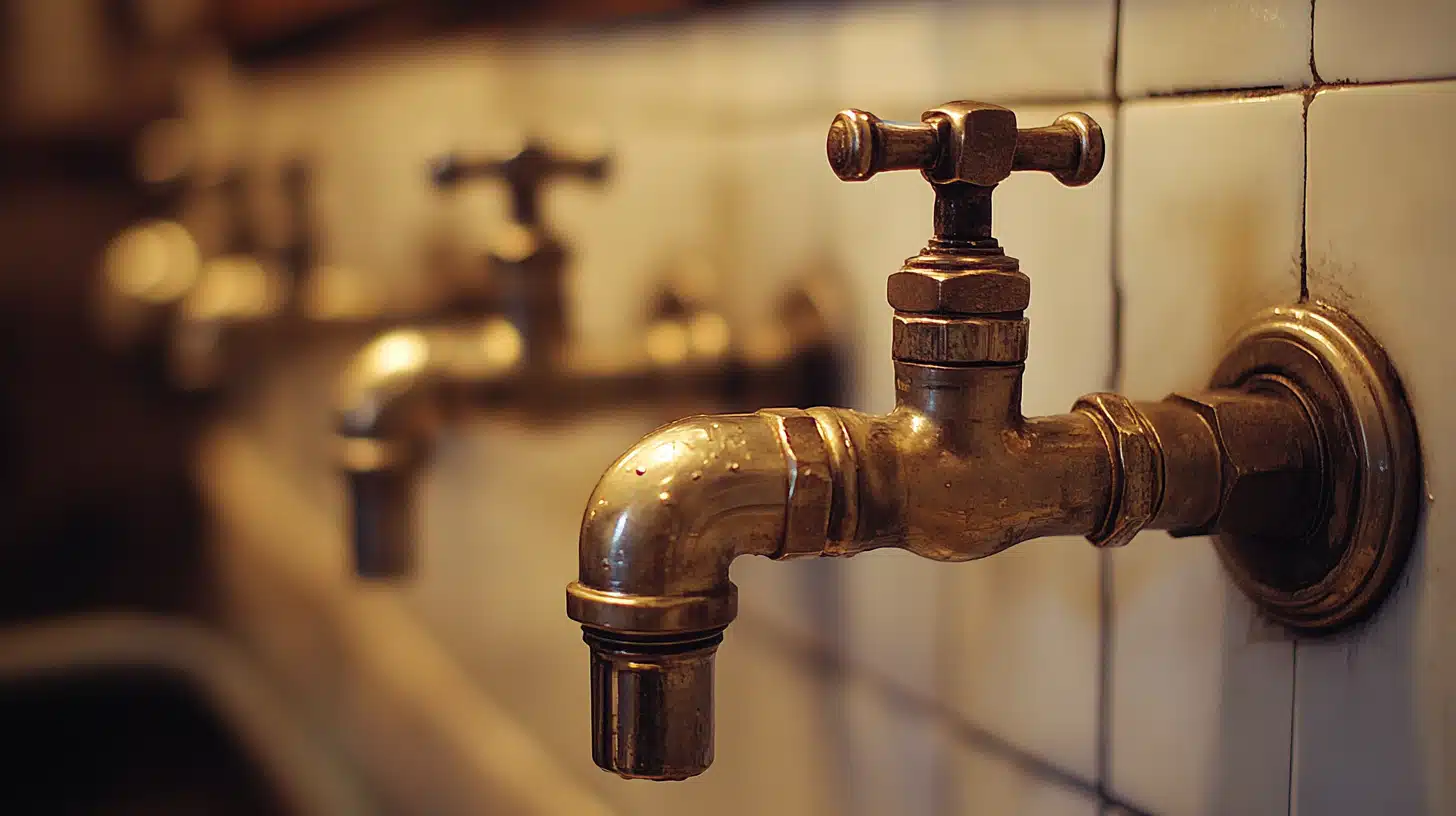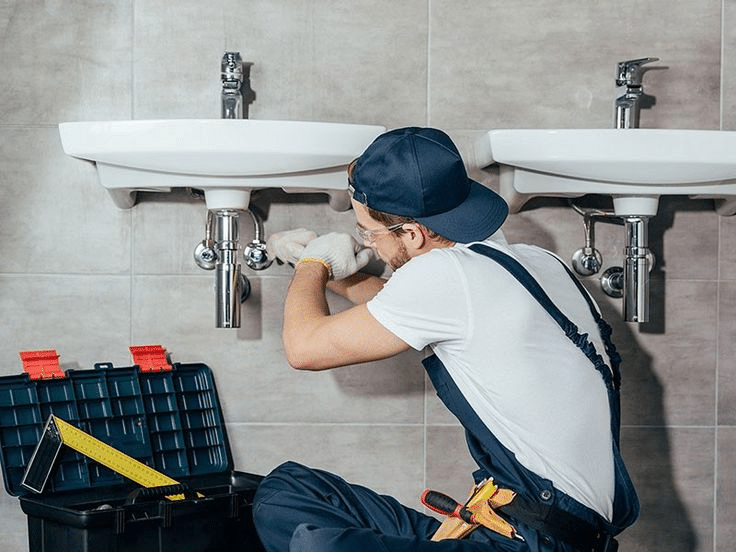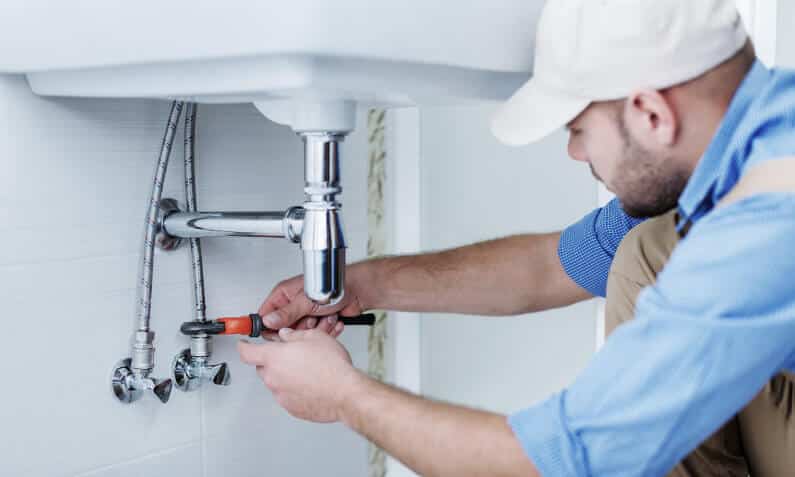
Looking for a plumber? Discover how to locate a trustworthy professional for a successful project.
Even a small plumbing issue can lead to significant damage and disrupt your daily life. That’s why choosing the right expert for the job is crucial.
This guide will provide you with all the information you need to find and hire a dependable plumber Toronto, including the associated costs and when it’s best to call in a professional rather than attempting do-it-yourself (DIY) repairs.
Understanding Plumbing Services

There are three primary situations in which you might need to hire a plumber:
- When you’re planning a remodeling project
- When you require routine maintenance
- When you experience a plumbing emergency
While some plumbing companies can manage all these tasks, many focus on either maintenance and repairs or larger remodeling projects.
Maintenance and Emergency Repairs
These plumbers take care of regular maintenance tasks such as inspecting pipes for leaks, clearing clogs, and checking water pressure. They also respond to urgent plumbing issues like burst pipes, severe leaks, and complete system failures. Some companies provide 24/7 service for these emergencies, but be prepared to pay extra for after-hours calls.
Remodeling Projects
Many significant remodeling projects involve plumbing, from bathroom upgrades to kitchen redesigns. For renovations and upgrades to your plumbing system, it’s essential to hire a plumber who knows how to design new pipe networks and is well-versed in local building codes. These professionals can work in both finished and unfinished spaces, ensuring your home is protected while making necessary changes.
How To Find a Reliable Plumber
Finding a trustworthy plumber takes some effort and careful consideration. Here are some effective strategies to help you in your search.
Recommendations and Referrals
One of the most reliable ways to find a good plumber is through personal recommendations from friends, family, or neighbors. Real estate agents can also be a great resource for referrals, as they often have a list of dependable plumbers who can resolve issues that might delay a home sale.
Online Reviews and Ratings
Websites like Google Reviews can offer valuable insights into a plumber’s reputation. Look for consistently positive feedback that highlights reliability, quality of work, and fair pricing. Be cautious of plumbers with a significant number of negative reviews or complaints about their services.
Questions To Ask Before Hiring a Plumber

Before you decide on a plumber, consider asking these questions to avoid potential problems and ensure they’re the right choice for your project.
Qualifications
Check a potential plumber’s qualifications to confirm they are knowledgeable, experienced, and efficient. Inquire about their training, licensing, and insurance.
Training and Licensing
Professional plumbers typically undergo extensive training, often beginning with an apprenticeship that can last four to five years. During this period, they learn about pipe systems, plumbing codes, safety regulations, and how to operate specialized tools. Many plumbers also seek additional certifications to specialize in areas like water heating installation, green plumbing, or other specific fields within the industry.
Most states require plumbers to be licensed, which usually involves passing a trade knowledge and building code exam. When evaluating a plumber, always request proof of their license and verify their current status with your state’s licensing board. Having a license indicates that they’ve met at least the minimum requirements to work in your area.
Insurance Coverage
Before any work starts, make sure to ask your plumber for proof of workers’ compensation and liability insurance. Workers’ compensation will protect you financially if the plumber gets injured while working on your property. Liability coverage is also important as it protects you in case of any accidental damage to your home during the plumbing project.
Experience and Specialization
Inquire about how long the plumber has been in business, their areas of expertise, and their experience with projects similar to yours. For more complex tasks, it’s wise to choose a plumber who has specific skills in that area.
Pricing Structure
Find out if the plumber charges by the hour or provides flat rates for certain jobs. For larger projects, ask for a detailed written estimate that outlines labor and material costs. Being transparent from the start can help avoid misunderstandings and unexpected expenses.
Warranty and Guarantees
A trustworthy plumber should be willing to stand behind their work. Ask about any warranties or guarantees they offer on both labor and parts. These policies can provide you with peace of mind and protection against potential issues later on.
DIY vs. Professional Plumbing Work
With some basic tools and knowledge, you can tackle simple plumbing tasks. For instance, our site offers guides to help you unclog drains and fix leaky faucets.
However, it’s crucial to know your limits and avoid attempting repairs if you feel uncomfortable or if the job exceeds your skill level. Mistakes can lead to serious problems like flooding, property damage, or even health risks, especially when dealing with sewage systems.
Professional plumbers possess the expertise, equipment, and understanding of codes necessary to handle more complex jobs accurately. They also carry insurance to address any issues that may arise. While it might seem more costly initially, having the work done correctly will save you money and trouble in the long run.
Establishing a Relationship With a Plumber
Building a relationship and maintaining good communication with a trustworthy plumber can provide you with peace of mind and potentially faster service during emergencies. They become familiar with your home’s plumbing system and components, allowing you to trust their work and advice. But how can you achieve this?
Some plumbers offer regular maintenance agreements that include routine check-ups. These agreements can help you catch small problems early, preventing major issues down the line, and you might even receive discounts on services as a subscriber.
Established customers often receive priority service during busy times. It’s much easier to get a plumber’s attention if you’re a regular client rather than a frantic stranger calling at 8 p.m. on a Saturday night.
Common Plumbing Issues and Their Solutions
Understanding the reasons behind common plumbing problems can enhance your communication with your plumber and help you make informed decisions about repairs. Here are a few typical issues:
- Leaks: If not addressed, leaks can waste water and lead to water damage. A leaky faucet might just require a new washer or cartridge, while leaky pipes may need more extensive repairs or replacement.
- Clogs: You might be able to clear minor clogs yourself using a plunger or drain snake, but if clogs persist or keep recurring, it could signal a more serious problem. Plumbers can utilize specialized video cameras to inspect and resolve tough clogs.
- Water heater issues: If your water heater is making strange noises or you’re not getting hot water at all, it’s best to leave the repairs to professionals. Plumbers can safely handle problems related to sediment buildup, faulty heating elements, or thermostat issues.
Technology in Modern Plumbing
The plumbing industry is being transformed by technological advancements, offering new methods for diagnostics and repairs. You may want to choose a plumber who utilizes these innovations:
- Video pipe inspection: Small cameras enable plumbers to examine pipes from the inside, identifying specific problem areas while reducing the need for disruptive excavation.
- Trenchless repair: This technology allows plumbers to fix and replace underground pipes with minimal impact on landscaping and above-ground structures. Methods like pipe lining and pipe bursting are often more cost-effective and quicker than traditional excavation.
- Smart water systems: These systems can track water usage, notify you of leaks, and even shut off the water supply during emergencies. Implementing them can help lower your water bills and reduce damage from leaks.
Our Conclusion
Whether you’re facing an emergency repair or planning a significant remodel, investing time in finding the right plumber will benefit you in the long run through quality workmanship and dependable service. While some minor plumbing tasks can be tackled as DIY projects, more complex issues are best handled by professionals. Building a relationship with a reliable plumber can provide peace of mind and safeguard your plumbing system for years to come.

